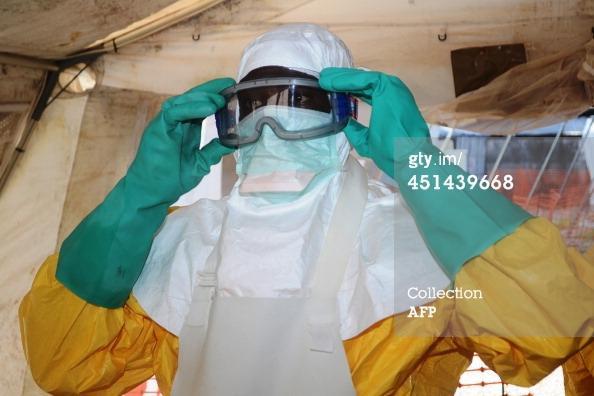Ebola continues to spread
Ebola, among the most highly contagious and deadly viruses, is currently threatening lives in West Africa. First breaking out in Guinea, the virus has now spread to Sierra Leone, Liberia, and Nigeria as well, and the number of people dying from it is increasing sharply.
People can be infected with the Ebola virus through contact with bodily fluids such as blood, and symptoms of the virus appear after approximately 21 days of contagion. Currently, there is no cure or vaccine; however, if people discover that they are infected early, there is a higher chance of survival.
Although many doctors attempt to treat Ebola patients, there are cases in which the doctors themselves have eventually succumbed to the virus. Dr. Sheik Umar Khan, a leading doctor from Sierra Leone, had treated more than 100 patients before he was unable to avoid the deadly hazard. The government honored Khan by acknowledging him as a national hero. However, his death was alarming to many doctors and nurses engaged in treating the virus.
Margaret Chan, leader of the World Health Organization, said “this outbreak is moving faster than our efforts to control it.” The problem is that doctors and nurses are scarce and infrastructure is lacking, especially in Sierra Leone due to two decades of civil war in the region. Additionally, many people in the country believe that the crisis is a myth created by the government to somehow bring advantage to the government. As a result, some citizens avoid any contact with hospitals.
On the other hand, experts on the virus held the first National Ebola Taskforce meeting in order to help hospitals set up solutions to protect both patients and doctors. For instance, Dr. Oliver Johnson from King’s College London indicated, “We immediately isolate anyone who shows symptoms… About a quarter of the patients who have been isolated have died at Connaught, meaning most recover or are referred for treatment elsewhere.” According to Johnson, even though doctors and nurses are cognizant of the dangers of the virus, they are still eager to engage with their patients.
The Ebola virus has became a major topic of conversation within the government and in the media. Health officials in Germany and France have already requested earnestly that people avoid unnecessary trips to the three countries where the virus has already spread. The African Union even cancelled a Sierra Leonean military rotation to Somalia, where it has a conflict with Al-Shabab Islamists.
Due to the gravity of the situation, experts will certainly keep working and looking for solutions. Thomas Frieden, director of the U.S. Centers for Disease Control and Prevention, offered hope: “CDC along with others are surging to begin to turn the tide. It’s not going to be quick. It’s not going to be easy. But we know what to do… it can be done.”
Sources: cnn.com, theguardian.com

Next year, The Talon loses a tremendously important News Reporter, as Matthew Kim is a senior and finishes high school in May. The Talon knows Matthew...











GU HONG MIN • Aug 7, 2014 at 1:08 pm
This was one superb article! I think that every year, the quality of Talon increases and this was one fine example of my belief. It successfully conveys the idea that the reader wants to know – which is the Ebola virus – very well by using different sources and including the thoughts of the writer. I believe that if he clarifies his thoughts with a bit more of evidence, I see a new CNN reporter here.